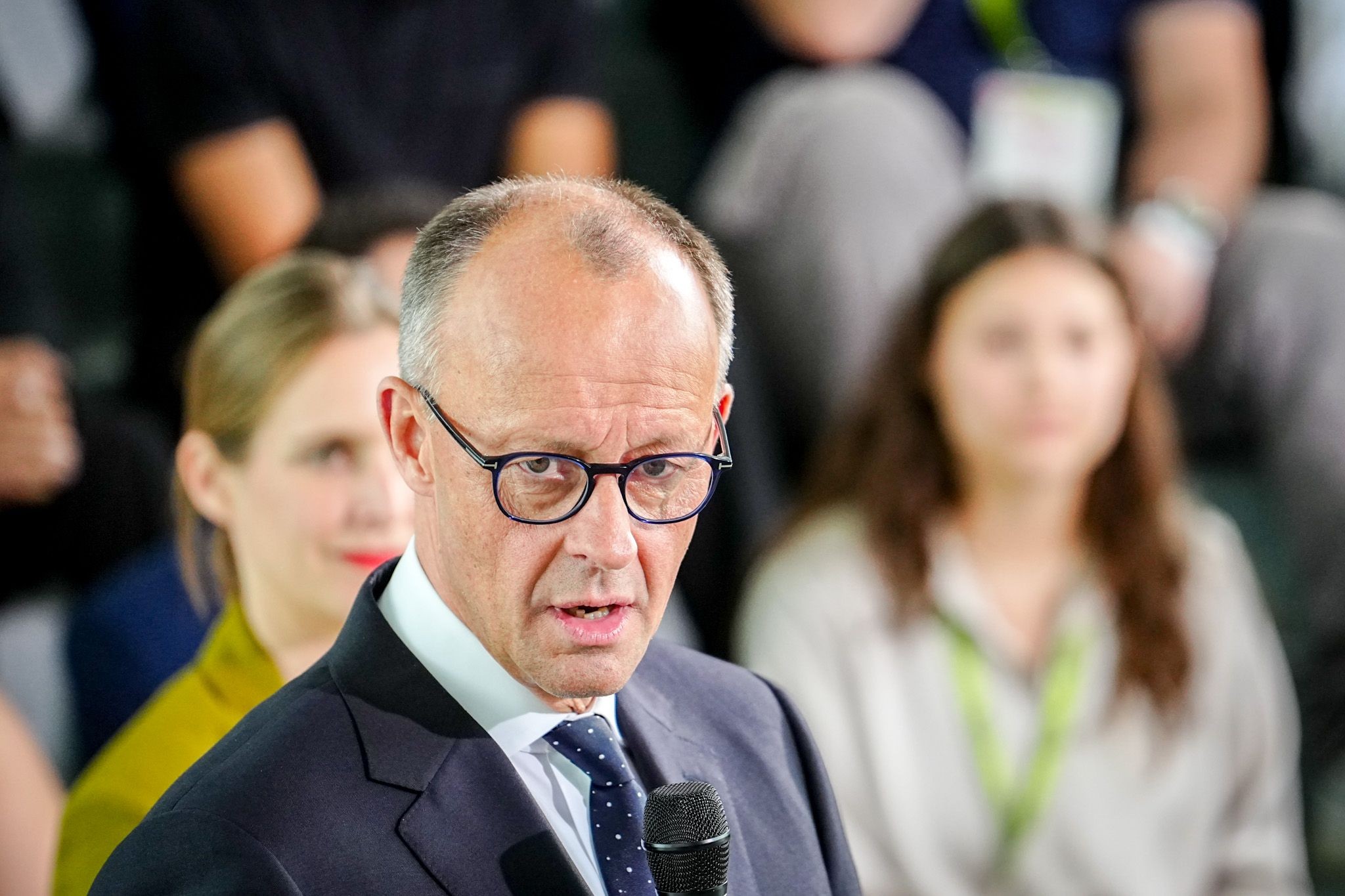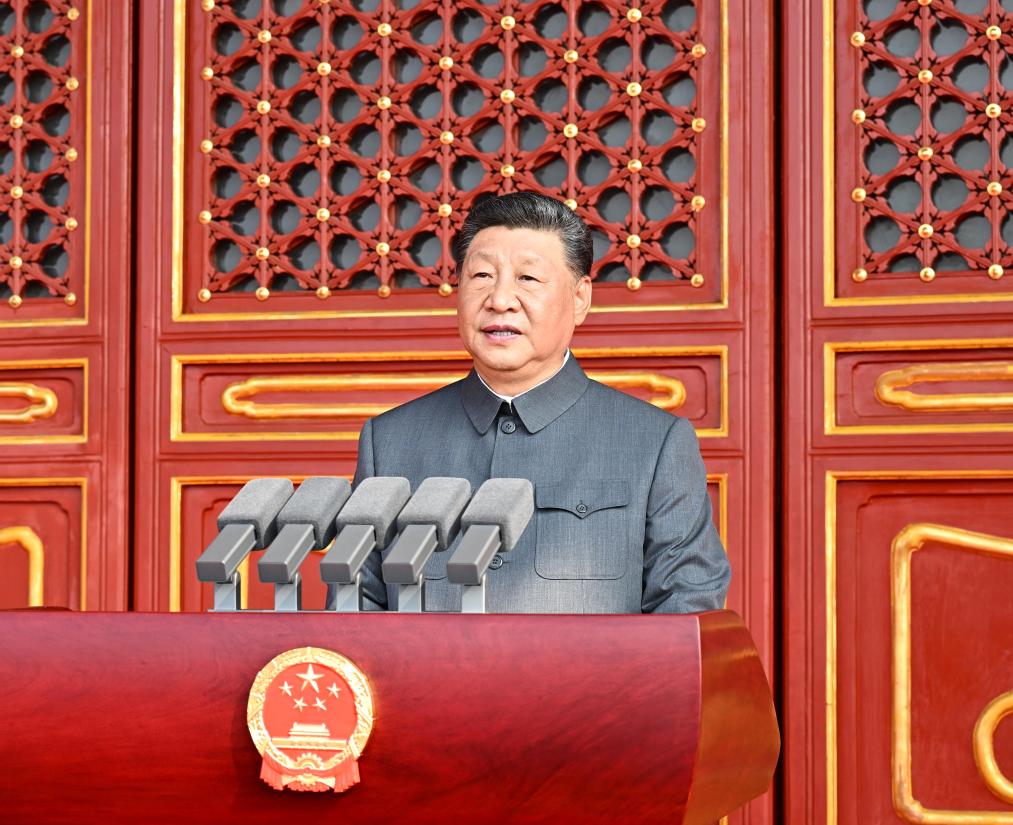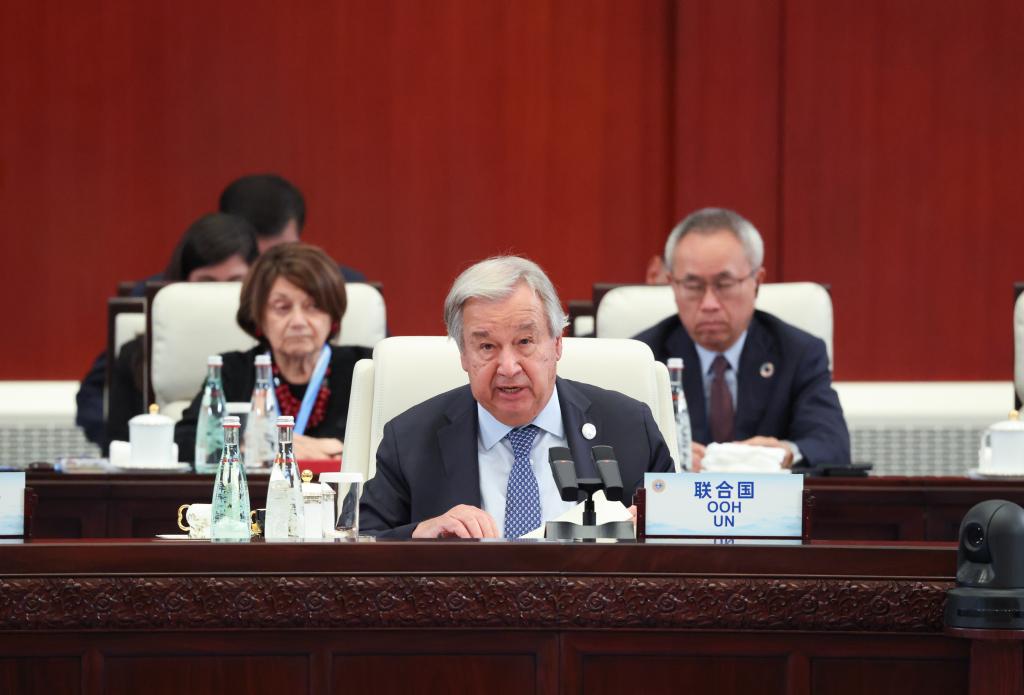Friedrich Merz on Friday supported US President Donald Trump’s proposal for a 30-day unconditional ceasefire in Ukraine, as he visited Brussels for the first time since taking office earlier this week.
“Russia is now called upon to finally agree to a longer ceasefire, which must leave room for a genuine peace treaty,” German Chancellor Friedrich Merz said after meeting European Council President Antonio Costa.
Merz also warned of further sanctions if Russia does not cooperate.
“If this does not happen, we will not hesitate, together with our European partners and the United States of America, to further increase the pressure of sanctions,” he said.
Merz also held talks with European Commission President Ursula von der Leyen, European Parliament President Roberta Metsola and NATO Secretary General Mark Rutte in the Belgian capital.
The newly elected chancellor spoke to Trump on the phone for the first time on Thursday evening, two days after taking office.
He said that several European states, including Germany, France, Poland and the United Kingdom, are willing to support Trump’s initiative with a joint declaration.
Trump on Thursday said “the US calls for, ideally, a 30-day unconditional ceasefire” in a post on his Truth Social platform.
A three-day ceasefire announced by Russian President Vladimir Putin is due to last until Saturday night, coinciding with a major military parade in Moscow.
Both Ukraine and Russia have reported continuing attacks despite the supposed ceasefire.
No NATO membership for Ukraine in near future
Speaking after his meeting with Rutte, Merz said he has no hopes of Ukraine joining the Western military alliance in the near future.
In the wake of Russia’s full-scale invasion of Ukraine, Kiev applied for membership to the European Union and urged NATO allies to issue an invitation to join the military alliance.
NATO agreed last year to admit Ukraine in the future without setting a date, but the US administration under Donald Trump has since ruled out such a move. NATO allies have to agree unanimously on admitting new members.
“Ukraine has the prospect of joining the European Union,” Merz said, speaking alongside Rutte. Experts say that Ukraine will not be ready to join the EU until 2030 at the earliest.
“This will certainly come before NATO accession, if that should materialize one day,” Merz added.
Merz defends migration policy
The trip to Brussels is his second foreign trip as chancellor after travelling to Paris and Warsaw on Wednesday.
Merz has promised closer cooperation with France and Poland and a renewed push for European sovereignty in response to the foreign policy shift in the United States under Trump.
During his election campaign, Merz also promised a tougher stance on migration.
The new chancellor on Friday defended his government’s move to increase controls at borders with its neighbours amid criticism from Poland, Austria and Switzerland.
“We will also continue to turn people back, but this is all in line with European law and our European neighbours are also fully aware of this,” Merz told reporters in Brussels.
“Germany is not acting alone here. We are coordinating with our European neighbours,” he insisted.
The new German government, which took office on Tuesday, wants to tackle irregular migration by imposing additional controls and turning back asylum-seekers at its borders.
Critics say that such an approach might not be compatible with EU law.
“Migration is a common European challenge and it needs a common European solution,” said von der Leyen after her meeting with Merz.
The commission president announced €3 billion ($3.4 billion) would be made available from the EU budget for migration and border management as well as for hosting Ukrainian refugees.
Von der Leyen stressed that the bloc has already agreed on a far-reaching reform of its migration and asylum regulations but that many stricter rules are yet to come into effect, calling the current situation “a dilemma.”
She urged EU countries to implement the reforms as quickly as possible.
Merz calls on EU to scrap supply chain law
Merz, who promotes a pro-business agenda, called for the cancellation of the EU’s supply chain law, likely to von der Leyen’s displeasure.
“We will revoke the national law in Germany. And I also expect the European Union to follow suit and really cancel this directive,” he said, speaking alongside von der Leyen.
The so-called Corporate Sustainability Due Diligence Directive (CSDDD) is part of von der Leyen’s long-term push for more sustainable and climate-friendly regulations.
Some companies however see the directive as adding excessive requirements that would impose bureaucratic burdens and reduce Europe’s competitiveness.
By Doris Pundy, dpa/Photo Credit: Kay Nietfeld/dpa
Share Us



